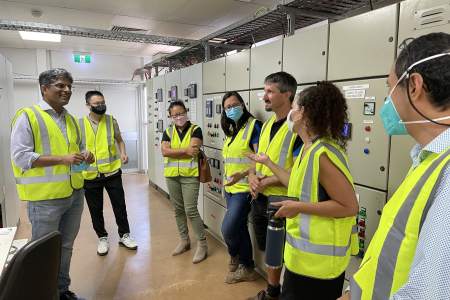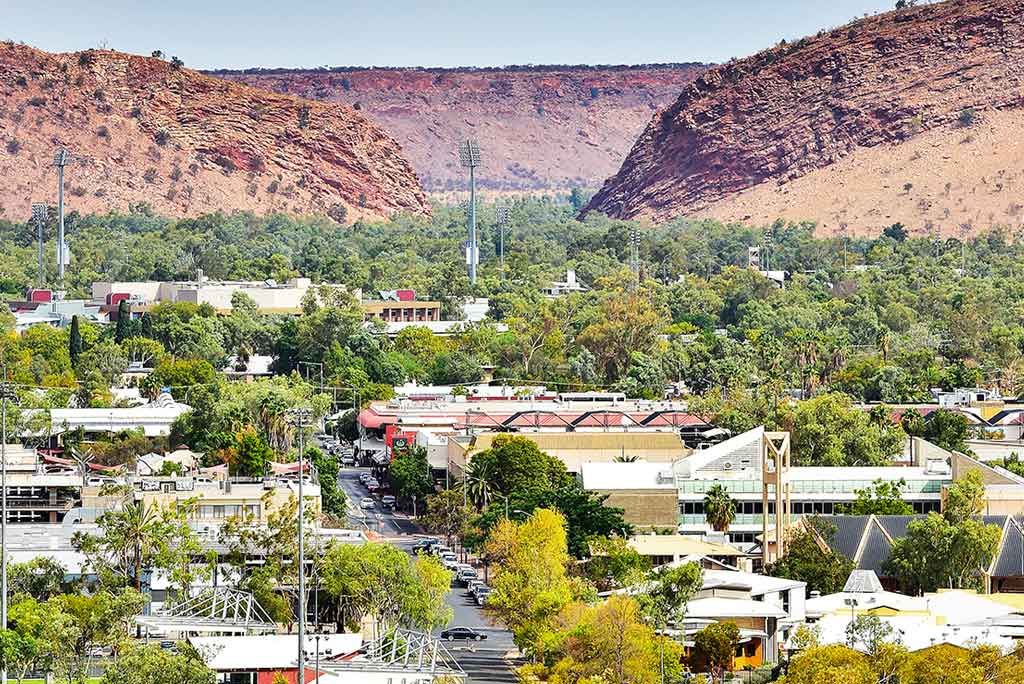Researchers from the Northern Territory’s Charles Darwin University (CDU) will use a microgrid simulator to investigate how the Central Australian town of Alice Springs can integrate increasing amounts of renewable energy, including solar PV and battery energy storage, into its isolated grid.
CDU has announced it will partner with the Alice Springs Future Grid project – a whole-of-systems project considering how the remote community can achieve 50% renewable energy by 2030 – to help identify and overcome barriers to further renewable energy penetration in the Alice Springs electricity system.
Future Grid will investigate how distributed energy resources, including household batteries and rooftop solar, and existing infrastructure can work together to create a clean, reliable and affordable energy supply.
CDU researchers will test individual components, including solar PV, hybrid and battery inverters for their suitability for real-world application at the university’s Renewable Energy Microgrid Hub for Applied Research and Training (REMHART) in Darwin.
CDU’s Energy and Resources Institute director Professor Suresh Thennadil said it was exactly why the microgrid simulator was constructed, allowing scenario testing without transporting potentially unsuitable equipment to remote locations.
“In the coming years, not decades, we will need a revolution in power generation and distribution that has not been seen since the initial rollout of a national power grid,” he said.
“The testing facility is a vital tool in making this power revolution happen in the NT, with research and testing of new renewable systems, and training provided to build industry capacity.”

Image: CDU
Individual solar, hybrid and battery inverters have now been installed at the microgrid hub and will be tested for Essential System Services response characteristics including delay time, ramp time and maximum charge and discharge power outputs under different load and generation scenarios.
“This is a great opportunity for our researchers to apply their skills to challenges relevant to industry and our communities while, at same time, developing their connections with our Future Grid partners,” Thennadil said.
“The inverter testing, via the Future Grid project, will demonstrate REMHART’s ability to bring together industry and academic researchers. Additionally, we expect the results from this study to inform our future research direction.”
Alice Springs already has about 10% renewable energy generation but faces unique challenges in overcoming system strength issues to serve approximately 30,000 people, with communities as far as 130 kilometres from the town.
The Future Grid project will culminate in the development of a roadmap identifying how the Alice Springs electricity grid could operate with 50% renewables by the end of the decade. The goal aligns with the Territory government’s target of 50% renewable energy by 2030.
Future Grid project director Lyndon Frearson, from Alice Springs engineering firm Ekistica, said CDU’s ability to facilitate the testing underscored how new opportunities, trials and partnerships can be developed in the Northern Territory.
“The people involved with the facility at CDU have been working alongside the Alice Springs Future Grid project since its inception,” he said.
“This partnership demonstrates how research and industry can collaborate, drive innovation, and build local capacity.”
This content is protected by copyright and may not be reused. If you want to cooperate with us and would like to reuse some of our content, please contact: editors@pv-magazine.com.









2 comments
By submitting this form you agree to pv magazine using your data for the purposes of publishing your comment.
Your personal data will only be disclosed or otherwise transmitted to third parties for the purposes of spam filtering or if this is necessary for technical maintenance of the website. Any other transfer to third parties will not take place unless this is justified on the basis of applicable data protection regulations or if pv magazine is legally obliged to do so.
You may revoke this consent at any time with effect for the future, in which case your personal data will be deleted immediately. Otherwise, your data will be deleted if pv magazine has processed your request or the purpose of data storage is fulfilled.
Further information on data privacy can be found in our Data Protection Policy.